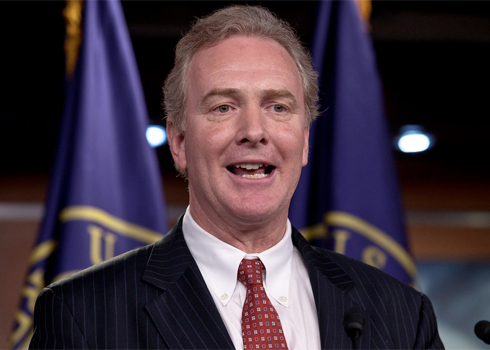The Republican opening bid in the fiscal war of 2011 is to dismantle Medicare and Medicaid, and to lower tax rates on the wealthiest Americans.
The Democrats, by contrast, will enter the sweepstakes with … the Simpson-Bowles recommendations?
For the uninitiated, Alan Simpson and Erskine Bowles co-chaired the White House’s fiscal commission, and personally recommended a series of conservative leaning policy proposals for reducing deficits and debt over the long-term. They floated their proposals after the commission itself was unable to reach a consensus. Among their proposals were reducing top tax rates and simplifying the system by eliminating loopholes and giveaways in the code.
President Obama will reportedly embrace these recommendations as a good starting point for negotiating a long-term budget for the nation — and he has the tacit backing of the Democrats’ top budget guy in the House, Rep. Chris Van Hollen (D-MD).
“I think that the Bowles-Simpson blueprint provides enough running room for the President,” Van Hollen said in response to a question from TPM at a budget presentation Tuesday at the Center for American Progress.
Van Hollen devoted most of his remarks to assailing the Republican plan on multiple fronts. But on Wednesday, the same day Obama plans to address the country to lay out a fiscal vision for the country, Van Hollen and House Democrats will unveil a plan of their own. There’s likely to be plenty of overlap.
“The basic approach of Bowles-Simpson, which is to look at both sides of the deficit equation, that is revenue and spending … I believe does provide, in that sense, an important starting point,” Van Hollen said.
The Simpson-Bowles report addressed Social Security with a mix of benefit cuts and increased revenues, and raised the retirement over the course of decades. Van Hollen said he thought it would be wise to address any long-term shortfalls in Social Security separately from broader budget negotiations.
By endorsing the Bowles-Simpson approach, and not its specifics, Van Hollen’s left himself, and the President some wiggle room. Both Obama’s plan and Van Hollen’s could pay rhetorical homage to Bowles-Simpson while embracing its more progressive elements only.
“In the Bowles-Simpson report baseline — in the baseline — they assume the revenue generated … from taking the top income earners back to the Clinton era rates,” Van Hollen reminded.
Bowles-Simpson was largely silent on health care costs, and their cuts to Medicaid and Medicare were insubstantial compared to the GOP plan — increased co-pays in Medicaid, and a big punt on projected cost overruns. But unless Democrats propose a much more progressive vision for saving these entitlements from rapidly rising health care costs, the middle point in the debate between the two parties will be decidedly conservative.






